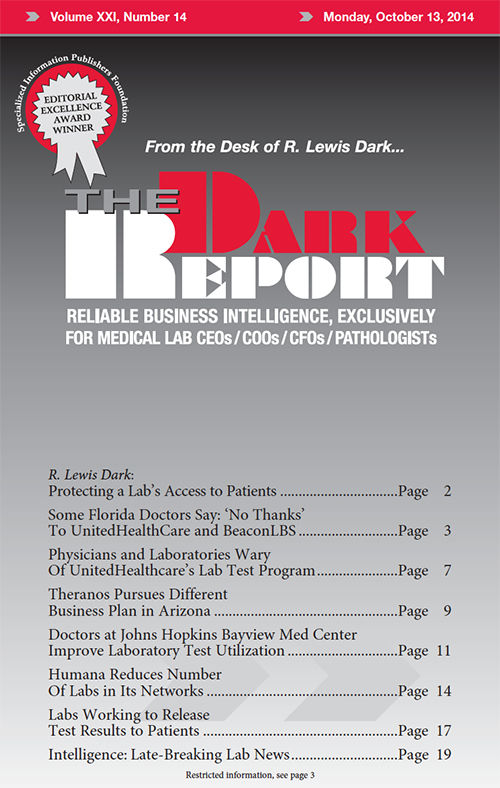CEO SUMMARY: In Ohio, a lab director said his lab was not informed directly about its exclusion from the Humana lab network. Lab officials got the word from their client physicians. In Texas, another lab director said Humana cut 35 lab contracts, reportedly because the insurer wanted to steer more test volume to its preferred …
Humana Reduces Number of Labs in its Networks Read More »
To access this post, you must purchase The Dark Report.


